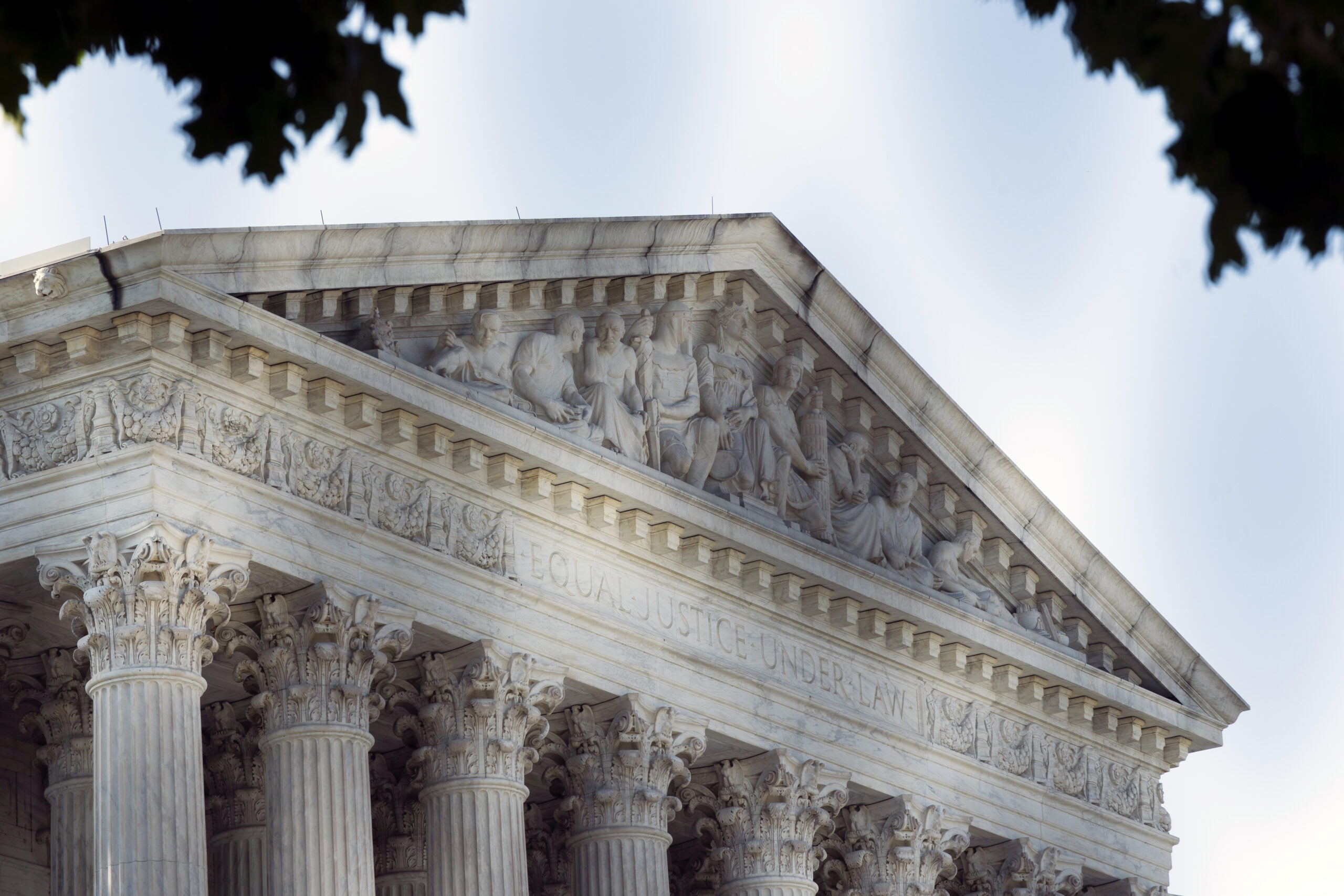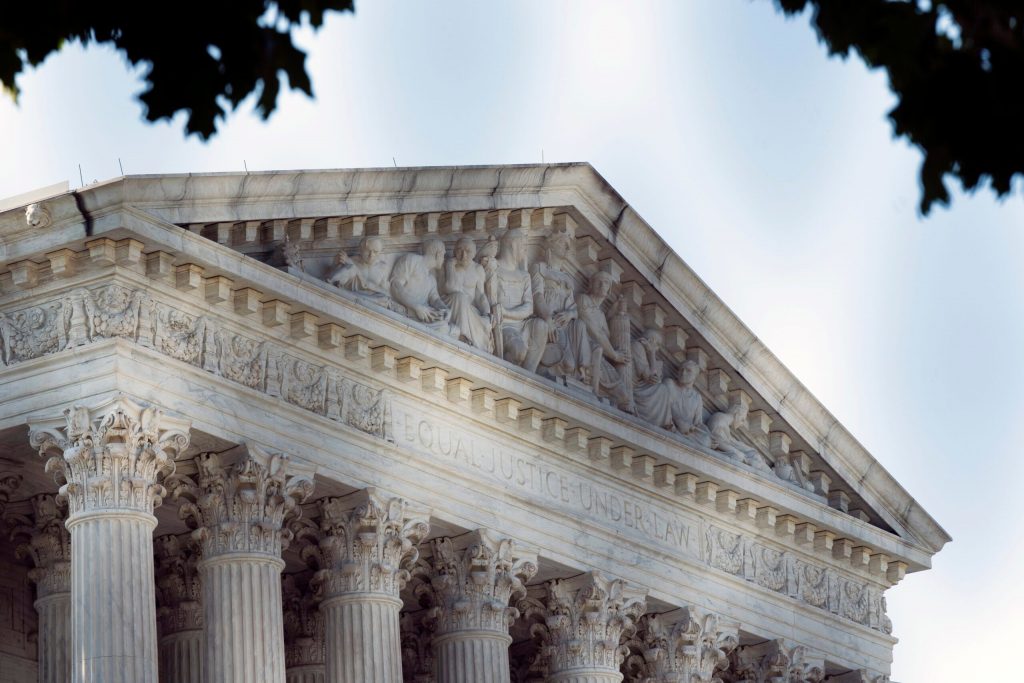
(RNS) — On Monday (May 1), the Supreme Court declined to hear a challenge to an Indiana measure, signed by then-Gov. Mike Pence in 2016, that requires medical providers to bury or cremate embryonic and fetal tissue after a miscarriage or abortion rather than treating it like all other forms of medical tissue. Patients who do not consent to this practice in writing must take the fetal tissue home with them.
As my co-counsel and I argued in an amicus brief submitted on behalf of diverse religious communities — including Jewish, Christian, Muslim, Sikh, Hindu, Unitarian, Humanist, atheist and Indigenous groups — Indiana’s fetal disposition law burdens the religious beliefs and practices of countless people in the state by pressuring them to agree to an end-of-life ritual that, for many, holds substantial religious meaning.
Originally, a federal district court ruled that the law unconstitutionally burdened the challengers’ “sincere religious and moral beliefs that the fetal tissue is not equivalent to a person,” further noting “it is no surprise that some will have firmly held religious and moral beliefs as to the status of fetal tissue.” In November, however, the U.S. 7th Court of Appeals overturned this decision, holding that the law did not burden religious belief or practice.
In claiming that the law did not infringe on religious exercise, the state of Indiana made several arguments — all of which significantly misstated the law and facts of the case. Religious liberty includes the right to refuse participation in a ritual that holds religious significance as much as it protects the right to engage in religious practice.
Despite this, one of Indiana’s briefs quoted Priscilla K. Coleman, a retired professor whose research on abortion has been repeatedly critiqued and even retracted, to allege that the law would have “no demonstrative impact” on abortion patients who “do not consider the fetus human.”
In other words, they argue that patients who don’t believe in fetal personhood shouldn’t object to the burial or cremation requirement.
Indiana’s claim is akin to arguing that people who don’t believe in the spiritual properties of holy water shouldn’t mind having their babies baptized in a public hospital. While the 28 groups and individuals who signed our amicus briefs hold a wide range of views on the meaning of life and personhood, all agree that being coerced to follow the state of Indiana’s preferred method for disposing of fetal or embryonic tissue conflicts with at least some of their members’ religious beliefs and practices.
Indiana also argued, and the 7th Circuit agreed, that the fetal disposition law did not burden patients’ beliefs because the legal requirement applied to medical providers, not the patients themselves. This argument ignores that patients were asked to fill out a form agreeing to have the tissue buried or cremated. More importantly, it fails the consider the uniquely intimate relationship between doctor and patient. The Indiana law may place a legal requirement on doctors, but that legal requirement involves tissue taken from the patient’s body.
For this reason, in many other contexts, courts have found that patients have the religious right to refuse medical interventions they oppose. Perhaps most notably, many cases have found that the performance of autopsies by state actors can violate the religious beliefs of the deceased and their families. In fact, the problem of autopsies being performed on religious objectors was discussed numerous times in legislative hearings over the country’s most far-reaching religious exemption law, the Religious Freedom Restoration Act.
It’s also worth noting that several recently filed cases have made much more expansive claims about how an individual’s personal religious beliefs should impact the actions of others.
In December, a nurse at a Veterans Affairs hospital in Texas filed a complaint alleging that it would violate her religious beliefs to “work in a facility that performs abortion services for reasons other than to save the life of the mother,” even if she did not have to participate. It will be telling to see whether the opinion in that case finds that a hospital’s decision to offer an abortion violates one of its employee’s religious beliefs, even as the 7th Circuit found no religious burden when a doctor performs an intervention on a patient’s own medical tissue to which the patient objects.
In our brief, we described the distinct religious beliefs and end-of-life practices of a wide variety of faith and secular traditions to demonstrate the burden that Indiana’s law places on religious practice. Unfortunately, the Supreme Court rejected the case even before waiting to receive and consider amicus briefs, which were only due the day they made their decision.
While the justices preferred not to wait for the opportunity to learn how the law would impact those religious communities, people of faith have become far more vocal in the wake of Dobbs v. Jackson in explaining the diversity of religious approaches to abortion and reproductive decision-making. This includes an increasing number of religious liberty-based legal challenges to abortion bans.
Though amici did not get their day in court Monday, it’s increasingly clear that courts will not be able to avoid growing conflicts between ever-expanding religious liberty doctrine and draconian regulations of reproductive health care.
(Elizabeth Reiner Platt is director of the Law, Rights, and Religion Project at Columbia Law School. The views expressed in this commentary do not necessarily reflect those of Religion News Service.)

